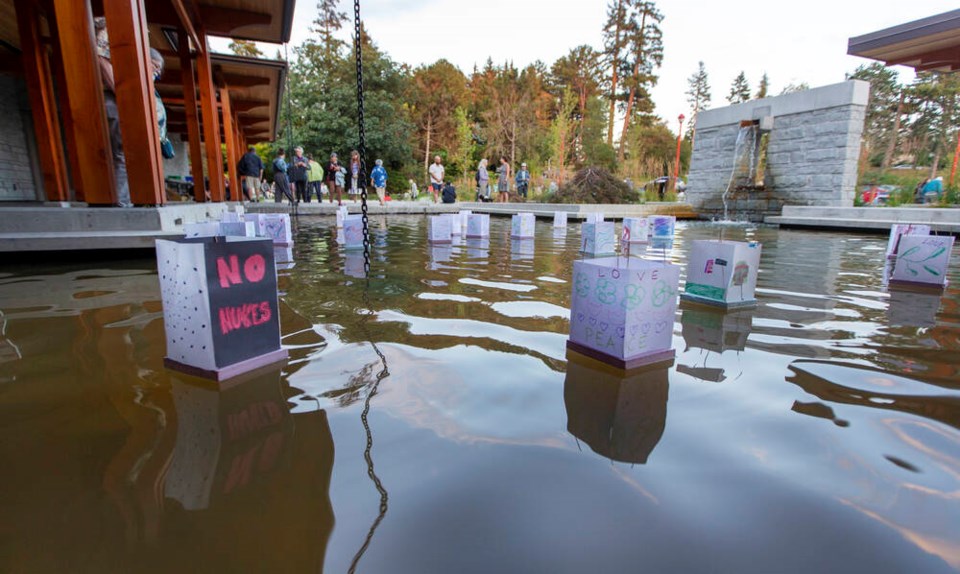I have noticed, for several years at about this time, paragraphs decrying the use by our Allied commanders of the two atomic bombs dropped on Hiroshima and Nagasaki.
The main theme of these articles seems to criticize the inhumanity of this action, often implying that their use was unnecessary since the Japanese surrender could have been achieved through diplomacy.
People who hold to that belief are apparently unaware that the supreme commander of all Japanese armed forces, Hideki Tojo, had been bitterly opposed to any thought of surrendering to our forces.
Tojo was removed from office in 1944, but the hawks among Japan’s generals and admirals wanted to maintain his belief that surrender was too dishonourable to contemplate. The doves of the day were forcibly prevented from appealing to Emperor Hirohito to end the war.
I take great exception to the author of the recent letter implying that U.S. politicians and generals of the day were self-serving. Certainly they had the best interest of their country in the forefront of their actions, as were our Canadian, Australian and British counterparts thinking of what was best for our countries.
I believe that only the most ardent revisionist can believe that the capitulation just four days after the A-bombs were used was a coincidence.
Now, in my twilight years, I can offer a little history of my own.
In 1944 I was too young to be in any of the armed forces, but my father and three of my four brothers were.
One of those boys was enlisted in an infantry regiment and was on leave here in Victoria before being embarked to fight in the Pacific theatre of war.
During his boot-camp training it was impressed upon him to forget the nonsensical Hollywood version of the toothy, sly, grinning, little Japanese soldier that wore glasses due to bad eyesight. It was impressed upon him that the enemy’s size and eyesight were as good as anyone’s, and that most of the time they could hit what they were shooting at.
Moreover, the Japanese soldier was disinclined to surrender, preferring to die fighting. If one has doubts about that, read Die Like the Carp!, the true story about an Australian camp for Japanese prisoners of war.
The threat of an enemy attack on Vancouver Island was heightened when Estevan lighthouse was shelled by a Japanese submarine, and also two or three freighters were torpedoed just off the Washington/Oregon coast.
Each of the CPR steamers on the Victoria-Seattle-Vancouver triangle run were fitted with an anti-sub cannon on their afterdecks.
About 1943, most of the Victoria school kids were issued real gas masks. A school chum of mine still has his. At Cedar Hill elementary school the Grade 6 boys were taught how to extinguish incendiary bombs.
Fortunately, we never needed to do it for real.
And so after those A-bombs were used, within days, the emperor finally announced to his people that “it was no longer in Japan’s best interest to continue the war” — Japan had “de facto” surrendered, saving many hundreds of thousands of lives from certain death because Tojo had insisted that every Japanese citizen must take up some form of weapon and try to kill at least one of our troops when invaded.
Tojo, belligerent to the end, attempted suicide but uncannily, after living a militaristic life, failed to kill himself by gunshot. He was hospitalized, made well and eventually hanged for war crimes.
My family was pleased to know that our brother did not have to fight in Japan and ended his army life as an aide to returned Canadian POWs who recuperated at the Gordon Head officers training camp, where the University of Victoria sits today.
Had an invasion of Japan been necessary, no doubt a great many of our troops would have perished.
Many of those who would today rewrite history and who are insulting of the Allied wartime leaders may very well not even exist today due to their parent or grandparent falling as a victim of Tojo’s edict that the Japanese must repel the invaders.
>>> To comment on this article, write a letter to the editor: [email protected]



